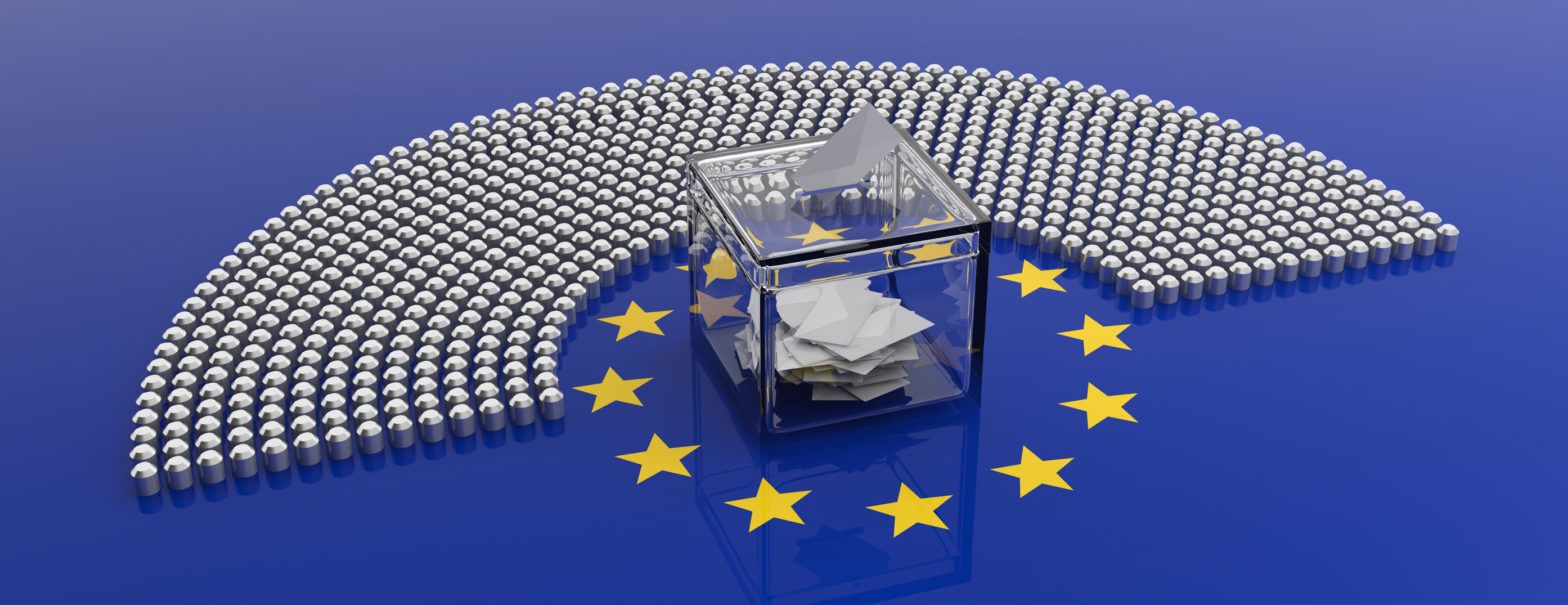The Brexit crisis has meant that many investors paid close attention to the European parliamentary elections last week. The vote takes place every five years, electing 751 MEPs from across the 28-country bloc.
As results came in on Monday it became clear that the traditional ‘grand coalition’ of conservatives and social democrats had lost its absolute majority, although the electoral success of the liberals and greens meant that pro-European groups still held a clear majority with two-thirds of the seats.
But with about 30% of seats going to Eurosceptic and anti-establishment groups policymaking is set to become more complex and require broader cross-party agreements. The balance of the next European Parliament will depend on group formation over the next few weeks.
The increased fragmentation of the parliament is likely to make the appointment of the next Commission President a potentially lengthy procedure, according to Deutsche Bank economist Kevin Koerner.
“A lengthy standoff between Council and Parliament as well as intense negotiations on the top jobs between leaders could push the appointment of the next Commission beyond October. This would reflect badly on the EU’s prospective ability for constructive policy making and joint decisions and could thus impact market’s confidence and trust in the single currency,” Koerner wrote in a paper after the results were released.
Populist fears overblown
“The good news from the elections is that populist fears were overdone,” said George Lagarias, chief economist at Mazars. “Broadly speaking, Eurosceptic parties didn’t sweep the elections, and maintained roughly the same weight as in 2014.”

In Britain, voters elected enough Brexit Party MEPs to become the biggest national party bloc in the European Parliament and in France and Italy, the National Rally and La Liga made meaningful gains.
“Overall, the populist footprint in the European parliament has increased, exacerbating centrifugal forces, further impeding European integration and possibly adding to strains on the euro,” Lagarias said.
Greece however bucked the trend. Greece was, of course, the first country in Europe to look to populists as a solution after the European debt crisis, but in last week’s elections voters shifted back towards the centre.
As a result, the Athens Stock Exchange General Index soared this week and yields collapsed as investors cheered the result. “It serves as a reminder to investors that there’s a risk premium attached to populism,” Lagarias added.
In a survey of more than 20 fund selectors at an Expert Investor event in Brussels earlier this month, 62% of attendees expressed the view that the shift towards populist parties in Europe was set to continue growing.
[visualizer id=”9485″]
Source: Last Word media
Implications for investors
Voters have vented their frustrations, but what is needed to restore greater investor confidence is some certainty about the path forward, said David Zahn, head of European Fixed Income at Franklin Templeton.
“While these election results are unlikely to have a direct impact on markets generally, they could act as a barometer of what Europe is thinking. Traditionally, the election of members of the European Parliament is seen as an opportunity for voters to vent their frustration, and we generally see a lot of protest votes. So, we’re cautious about reading too much into the results,” Zahn said.
Ollie Beckett, a portfolio manager focused on European equities at Janus Henderson, said the EU election does not represent a significant change for European stock markets. “Despite the rise of potentially antagonistic populist voices in the EU, there is no clear desire for a break-up of the bloc, although the result may represent a risk of disruption to the traditional party system at a national level,” he said.
What now for Brexit?
British prime minister Theresa May’s decision to resign last week after failing to secure parliamentary backing for her withdrawal agreement, leaves the prospects for Brexit resting with her successor.
The strong performance by Nigel Farage’s Brexit Party in the European Parliament elections increases the likelihood that the new leader to come from the Eurosceptic wing of the party and take a harder line on Brexit.
“The chance of a no-deal Brexit has increased significantly,” said Zahn, adding that a no-deal scenario is starting to be reflected in the markets. Ten-year gilt yields have fallen about 1% and sterling has endured a sustained sell-off against the euro.
The process of electing a leader could mean the new prime minister may not be in place until August, leaving little time for any renegotiation with the European Union – even assuming it would be willing to reopen talks.
Zahn said that as a result, Franklin Templeton estimated the chances of no-deal Brexit at 30% to 35% because there was not time to put in place a deal to avoid it.
In light of the UK’s political impasse, Janus Henderson remains underweight on UK equities, Beckett said. “Contrary to many opinions, we do not believe that the UK is unbelievably cheap, although we are interested in selected areas where we perceive the potential for structural growth, such as housing,” he said
“We are reaching a point where ‘no deal’ is starting to be factored into pricing. We think that this is more likely after the EU election result and with a Conservative leadership contest ahead.
“Our view changes as we look across the Channel, where many European companies with UK exposure are deeply undervalued. Danish shipping and logistics group DFDS is among those stocks where sustainable high returns are not being reflected in the share price.
Similarly, anything with exposure to China has been sold off heavily, reflecting uncertainty over the US-China trade war. While this is understandable, exposure to China is not always bad. Companies like French retailer SMCP are continuing to do well in that market.”







